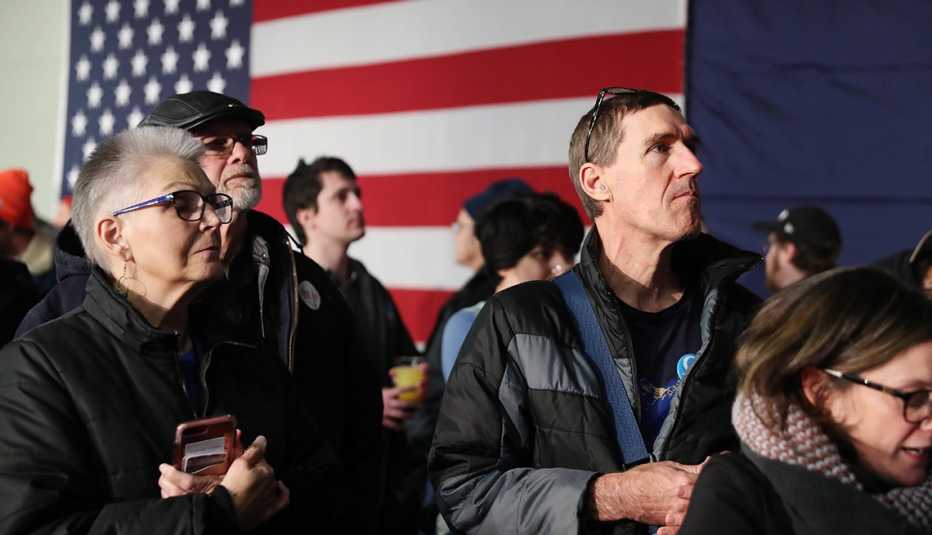AARP Hearing Center


Jim Davis says he's had a front-row seat to electoral history for more than four decades and he has always gone to his Iowa caucus firm in his decision about who he wanted to be the Democratic nominee for president. But for the first time, he went to Monday night’s contest not knowing who he would support.
"I've never seen so much indecision in all my years,” Davis said before presiding over a caucus in Charles City, Iowa, a rural town of 7,000 people. “I'm trying to make a judgment as to who I think would be great doing the job but also shares my governing philosophy.”
Davis caucused at one of more than 1,600 sites Monday night. And 56 percent of caucus goers were 45-years-old or older, according to preliminary entrance polls reported by NBC News.
“Not only are we seeing lots of older caucus-goers, it’s clear that the 50-plus constituency is very engaged and well-versed on the issues,” said Nancy LeaMond, AARP’s executive vice president and chief advocacy and engagement officer. LeaMond was at a caucus Monday night at Drake University in Des Moines.
Davis said he didn’t make up his mind until he arrived at his caucus and decided to caucus for former South Bend, Ind. Mayor Pete Buttigieg. Five candidates won delegates at his precinct. Buttigieg, former Vice President Joe Biden, Minnesota Sen. Amy Klobuchar and Vermont Sen. Bernie Sanders each received three delegates and Massachusetts Sen. Elizabeth Warren received two.
Sanders and Buttigieg were leading in the popular vote, followed by Warren, Biden and Klobuchar, according to partial results released Tuesday afternoon by the Iowa Democratic Party.
Four days before the caucus, a cacophony of factors was swirling around in his head as he weighed his decision. Davis, 66-year-old retired self-employed businessman, wants a candidate who will protect the integrity of Social Security and make sure it will be there when his children retire. He wants someone who will do something about the runaway costs of prescription drugs. A self-described centrist, Davis also is looking for a candidate who can win the election — but more than anything, a candidate who will be good at the job.
"What makes it different when you live in Iowa is you actually get to cross paths with folks who are saying to you: ‘I want to be the next president of the United States,'” Davis says.



































































More on politics-society
Your Guide to 2020 Primary Voting
From ID requirements to absentee voting, what you need to knowExclusive Poll: Women 50 and Older Could Decide the 2020 Election
Almost all plan to vote and a wide majority are still undecidedWhen You Can Vote in Your State's Primary or Caucus
Citizens over 50 will play pivotal role in who will be on the ballot in November